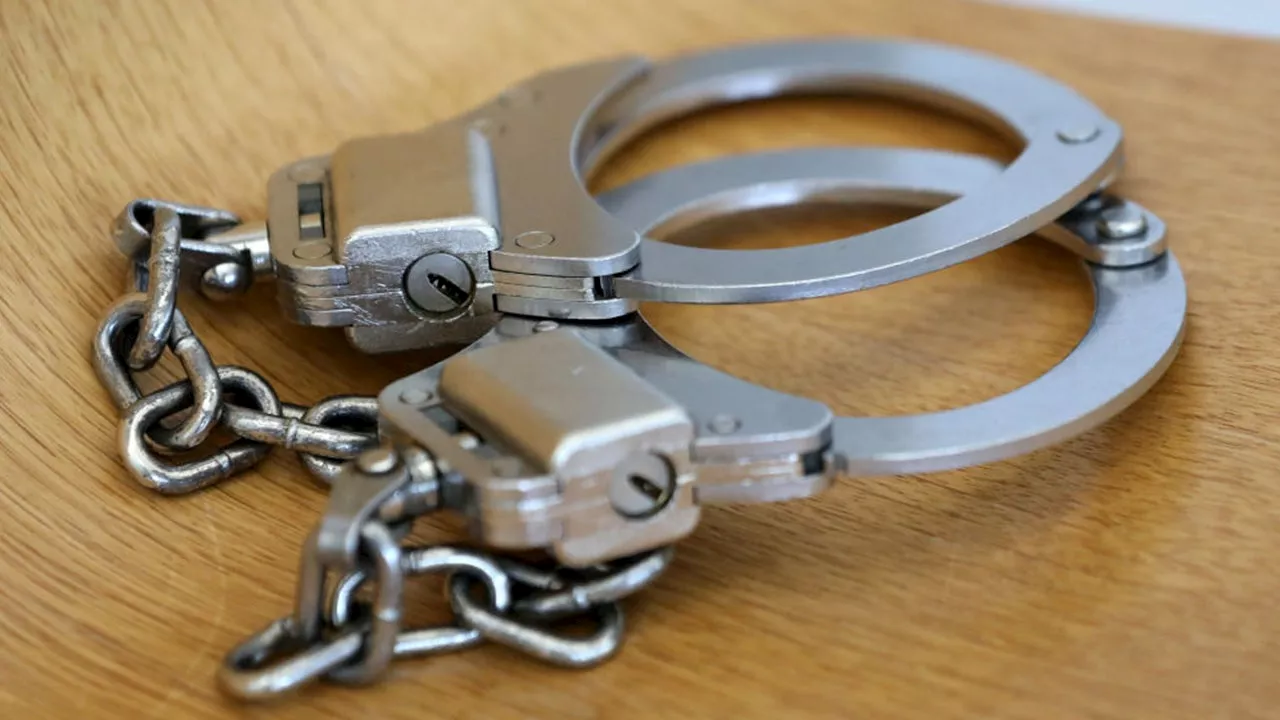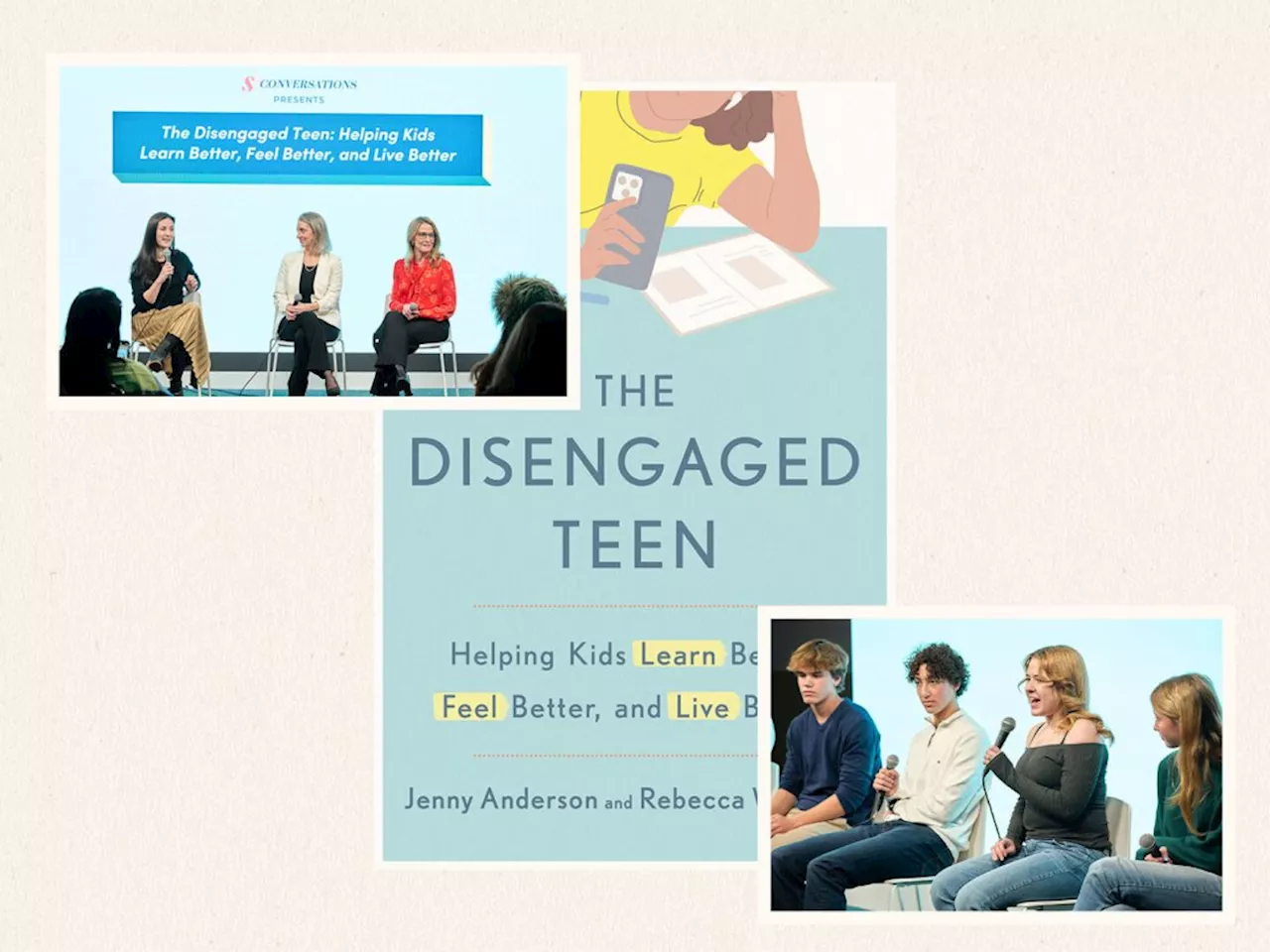Authors Jenny Anderson & Rebecca Winthrop Explain Teens’ Four Modes of Engagement — & How They’re ‘States, Not Traits’
If you purchase an independently reviewed product or service through a link on our website, SheKnows may receive an affiliate commission. Parents of teens know that getting them engaged in learning can sometimes feel like pulling a mule uphill.
And to help us understand why — and, more importantly, how to tackle it — we spoke with authors Jenny Anderson and Rebecca Winthrop, whose new book is titled, “The Disengaged Teen: Helping Kids Learn Better, Feel Better, and Live Better,” and a panel of four teens, including members of our own Gen Z Council. It was an enlightening look at what Anderson and Winthrop call a “disengagement crisis,” and their expert take on how to tackle it. You can watch the entire video above, but we’re highlighting some key points of the event here. In their research, the authors found that more than 65 percent of high school students today report feeling “checked out” of school. There has always been a disengagement crisis (have you seen, but what has changed is the impact of that disengagement. If they’re not engaged in learning, it’s going to be harder for them to develop the skills they need in this ever-changing world of technology — and the consequences of this, say Anderson and Winthrop, are “profoundly alarming.” The authors explained that kids engage in ways that you can’t always see, and that grades only tell half the story. In reality, there are four distinct modes of engagement:: Students who actively resist learning, often due to feelings of disconnection or frustration. Students in resister mode are typically labeled as “the problem child.”Still, Anderson stresses, “This is not an exercise in trying to pigeonhole kids.” Kids can flow from one mode to another, even within a single day. Driving is a good analogy; In the course of one car trip, you change lanes, coast, and adjust speeds. It works the same way for kids who are in and out of these learning modes, sometimes multiple times daily. The ideal mode, Anderson and Winthrop explain, is Explorer Mode. Allowing students agency and choice in their learning, and letting them pursue the things that interest them, can foster engagement and motivation. This can then help them develop proactive learning skills that they’ll need to function optimally in the real world.As parents, it’s on us to balance the desire for academic success with the need to prioritize our kids’ well-being and mental health. As Anderson cautions, “The system is insatiable. It will never stop demanding things of your child.” So it’s essential to help students build balance. We should actively encourage them to take their foot off the accelerator, she says; let them know that their well-being matters more than their GPA or getting into a certain college.of their learning, rather than just the outcome (i.e., grades). Ask about their interests and passions — even if it’s as simple as, “How was lunch?” Provide as many opportunities as you can for them to explore the things they’re interested in. Of course, who better to consult for opinions on school (and why they’re not into it) than students themselves? The teens of SheKnows’ Gen Z Council had a lot to say on the topic, and four students — Clive, Santiago, Chloe, and Greta — joined the authors on stage to share their own experiences. Clive says bad grades don’t inspire him to do better, they just make him lose motivation. For Chloe, the worst is feeling attacked when her parents bring up a bad grade: “It’s about the ten other things you’ve got going on, on top of that test, and it can really feel overwhelming when someone nitpicks about one specific part of your life you might not be doing that well.” Santiago wishes parents knew how much stress can affect students. Echoing this, Greta says that parents don’t understand the extent of the pressure students can be under, and the feeling of having to be “on” all the time. Winthrop expands on that, saying that kids need “radical downtime.” It’s scientifically proven that they need breaks, she says: “It’sA running theme in all the research, says Winthrop, was that when kids are allowed to be in Explorer Mode, they get the best grades. (“This was 35 randomized controlled trials in 14 countries, including places like South Korea which are highly authoritarian and have extraordinarily high expectations,” adds Anderson, “so you don’t have to compromise expectations to give agency and choice.”) When teachers give students some freedom and choices about how they want to work, those kids get the best grades. So what does all this boil down to? By recognizing the importance of agency, choice, and mental well-being in learning, we can help our teens cultivate a love of learning that extends beyond the classroom. By giving them the freedom to explore, create, and take risks, we can help them develop the skills, motivation, and resilience needed to succeed in an ever-changing world. Ultimately, as Anderson and Winthrop tell us, it’s time to rethink our approach to education and prioritize the unique needs and interests of each student — empowering them to become active, engaged, and lifelong learners
TEENAGE LEARNING ENGAGEMENT CRISIS STUDENT WELL-BEING EXPLORER MODE AGENCY CHOICE
United States Latest News, United States Headlines
Similar News:You can also read news stories similar to this one that we have collected from other news sources.
 Teen girl stabs another teen in Joliet after social media disputeA dispute on social media led to a teenage girl stabbing and seriously injuring another teen girl in southwest suburban Joliet on Monday.
Teen girl stabs another teen in Joliet after social media disputeA dispute on social media led to a teenage girl stabbing and seriously injuring another teen girl in southwest suburban Joliet on Monday.
Read more »
 Teen stabs another teen at Philadelphia private school, police sayA 13-year-old boy was stabbed by another teen inside Community Council Learning Academy, Philadelphia police said.
Teen stabs another teen at Philadelphia private school, police sayA 13-year-old boy was stabbed by another teen inside Community Council Learning Academy, Philadelphia police said.
Read more »
 Report: Marquise 'Hollywood' Brown News Just Gets Better and Better for KC ChiefsWith the anticipated return of WR Marquise 'Hollywood' Brown on the horizon, one NFL insider reports that it could be sooner than later for the KC Chiefs.
Report: Marquise 'Hollywood' Brown News Just Gets Better and Better for KC ChiefsWith the anticipated return of WR Marquise 'Hollywood' Brown on the horizon, one NFL insider reports that it could be sooner than later for the KC Chiefs.
Read more »
 Teen Approved Stocking Stuffers Your Teen Will Actually UseSheKnows compiled a list of teen-approved stocking stuffers that will be a hit this Christmas. From practical items like temporary tattoos and blemish treatments to fun gadgets like slime and nail polish, there's something for every teen on your list.
Teen Approved Stocking Stuffers Your Teen Will Actually UseSheKnows compiled a list of teen-approved stocking stuffers that will be a hit this Christmas. From practical items like temporary tattoos and blemish treatments to fun gadgets like slime and nail polish, there's something for every teen on your list.
Read more »
 Miss Alabama's Teen 2024 set to compete for Miss America's Teen crownAli Mims, Miss Hoover's Teen, is gearing up to represent Alabama in the Miss America's Teen competition after winning the state title in March. The national competition will take place this week in Orlando, Florida, with events including talent showcases, fashion shows, and interviews.
Miss Alabama's Teen 2024 set to compete for Miss America's Teen crownAli Mims, Miss Hoover's Teen, is gearing up to represent Alabama in the Miss America's Teen competition after winning the state title in March. The national competition will take place this week in Orlando, Florida, with events including talent showcases, fashion shows, and interviews.
Read more »
 Welding Teacher: Trades Can Help Disengaged StudentsA welding teacher in California believes that trade education can help improve attendance and graduation rates for students who struggle in traditional academic settings.
Welding Teacher: Trades Can Help Disengaged StudentsA welding teacher in California believes that trade education can help improve attendance and graduation rates for students who struggle in traditional academic settings.
Read more »
